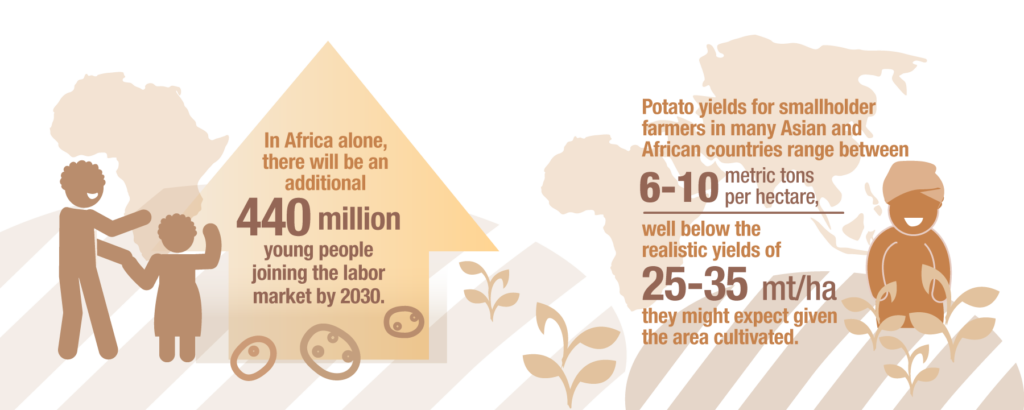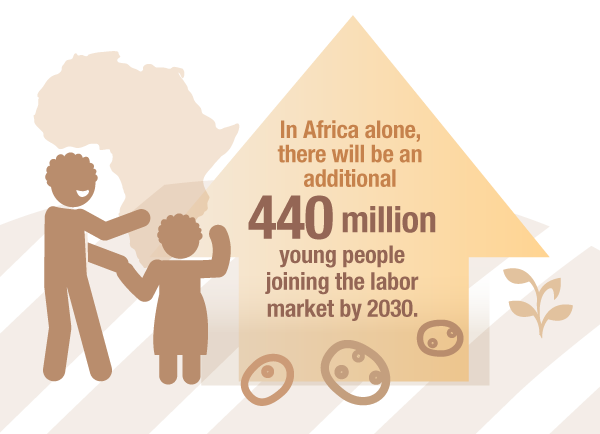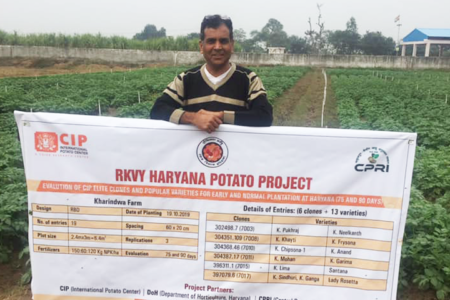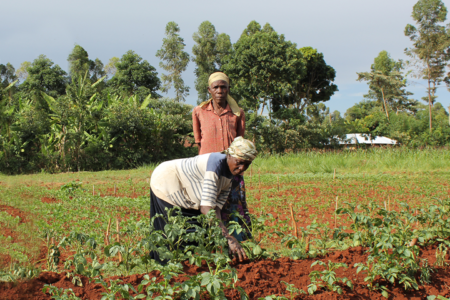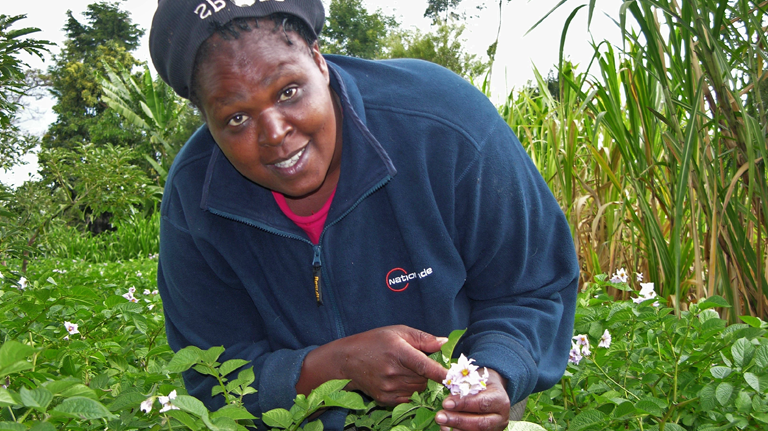
Enhancing technical support to potato working groups in Cameroon, India, Kenya, Mali, Nigeria, Tunisia and Uganda.
Members of the potato working groups will benefit from access to international expertise and the mutual exchange of information and innovations to boost potato production in their respective countries.
Background
Humanity’s future will depend strongly on its rural areas. Healthy and resilient rural areas will be able to prevent food crises and offer rural populations real prospects for the future, primarily jobs for the young. In Africa alone, there will be an additional 440 million young people joining the labor market by 2030. Potato farming offers opportunities to make a small, but significant, contribution to the improvement of food security and nutritional outcomes in Asia and Africa.
One of the major obstacles facing potato farmers is low yields. Potato yields for smallholder farmers in many Asian and African countries range between 6-10 metric tons per hectare, well below the realistic yields of 25-35 mt/ha they might expect given the area cultivated. The reasons for this gap between production levels and production potential include poor seed quality, limited irrigation facilities, low levels of mechanization, poor access to inputs (e.g., fertilizers and pesticides), high-pest incidence, and a lack of knowledge and availability of innovative practices and technologies (e.g., integrated pest management).
For instance, farmers typically use their own saved seed for next year’s crop because they have minimal access to the high-quality seed varieties with improved resistance to heat, drought and disease. If inferior seed is used over several generations, it becomes severely degenerated and results in reduced crop yields. The lack of quality seed is a major constraint in developing countries and an important factor in low productivity.
As part of its One world, no hunger initiative, the Federal Ministry of Economic Cooperation and Development, BMZ, established global programs working to increase yields and improve nutrition, and to boost exchange of expertise in the potato sector. A two-pronged approach, led by Deutsche Gesellschaft für Internationale Zusammenarbeit (GIZ), the Green Innovation Centers program operates in Cameroon, India, Nigeria, Mali and Tunisia, and the Promotion of nutrition-sensitive potato value chains in East Africa program operates in Uganda and Kenya.
Objective
- To provide of technical support and policy advice within the potato working group in its seven partner countries; and
- To develop the capacities of the members of the potato working group and other strategic stakeholders.
Approach
To stimulate cross-country learning and harmonize advisory services on potato value chain activities, GIZ established a steering group in 2018, to which CIP plays an advisory role and provides technical support and policy advice. A separate working group—comprised of 23 active members from the seven countries—conducts and documents meetings, provides training, prepares and shares flyers and other materials on specific needs and innovations, and supports members to attend international potato conferences. Since early 2018, the group has focused on agricultural policy advice in partner countries.
In close collaboration with GIZ’s International Potato Innovation Group, the project provides members with a range of supports including analysis of major potato value chain constraints, policy advice, the identification and adaptation of country-specific innovations, the development of an intervention strategy, and capacity development training for farmers (e.g., seed system development, business model development for seed potato).
CIP has also established a potato knowledge repository to make regular updates on innovations and access to newsletters, training materials, and specific literature available to working group members. A potato expert databank (internal and external) is being updated regularly and will be made available to the GIZ International Potato Innovation Group to help them rapidly identify relevant experts for special project needs and interventions. All the activities will be implemented with greater depth and specificity during the course of the project.
Expected outcomes
Through support and training of the working group members, national capacities in the use of state-of-the-art potato production technologies will be enhanced in each of the seven countries. By virtue of specific interventions, potato technologies will be adapted to specific sites and successfully implemented with project partners.
Contact
Kalpana Sharma
CIP, Kenya
kalpana.sharma@cgiar.org
Thanks to our donors


